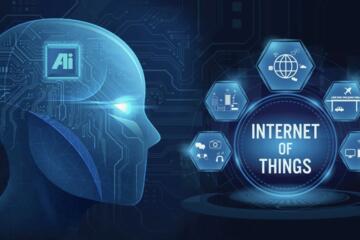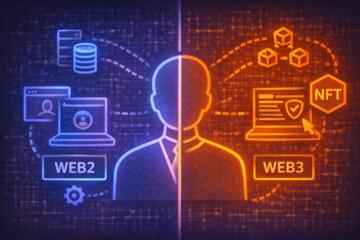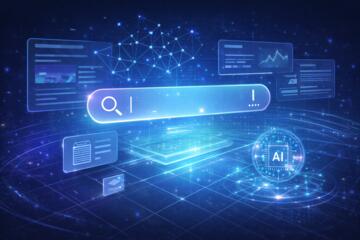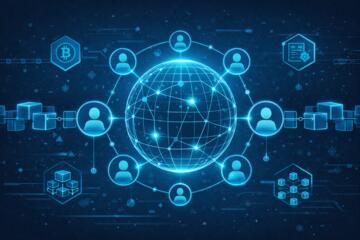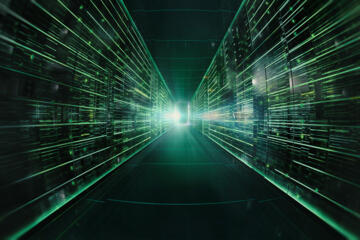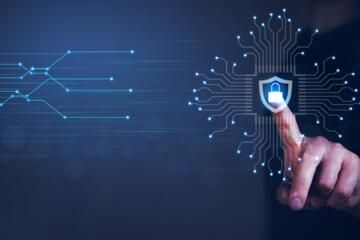Imagine your fridge texting you when the milk runs low, your watch alerting your doctor before you feel sick, and your car booking its own service appointment. This isn’t sci-fi—it’s the Internet of Things (IoT) in action. From smart thermostats to industrial sensors, billions of connected devices now silently exchange data, helping us optimize everything from personal health to city traffic.
The IoT represents one of the most transformative trends of our era. It’s not just adding Wi-Fi to objects—it’s creating a digital nervous system for the physical world. As more devices come online and 5G accelerates connectivity, IoT is becoming the backbone of smart cities, autonomous systems, and real-time decision-making. Understanding this shift is crucial—not only for technologists, but for anyone navigating the future of work, privacy, and daily life.
🔧 What Is the Internet of Things?
The Internet of Things is a network of physical objects—“things”—embedded with sensors, software, and connectivity that allow them to collect and exchange data.
Common examples include:
-
Smart home devices (lights, locks, speakers)
-
Wearables (fitness trackers, smartwatches)
-
Industrial IoT (machines, pipelines, sensors)
-
Healthcare IoT (remote monitoring, smart pills)
-
Agritech (soil sensors, automated irrigation)
These devices don’t just sense the world—they often respond to it autonomously.
📈 Growth & Trends in IoT
As of 2025, experts predict over 30 billion IoT devices will be online—more than triple the global population. Several key trends are driving this growth:
-
5G & edge computing: Faster, lower-latency connections for real-time responses
-
AI at the edge: Devices process data locally, not just in the cloud
-
Energy-efficient chips: Making small, cheap, always-on sensors possible
-
Interoperability: Open standards to help devices “speak the same language”
-
Cybersecurity-by-design: Securing billions of endpoints from attacks
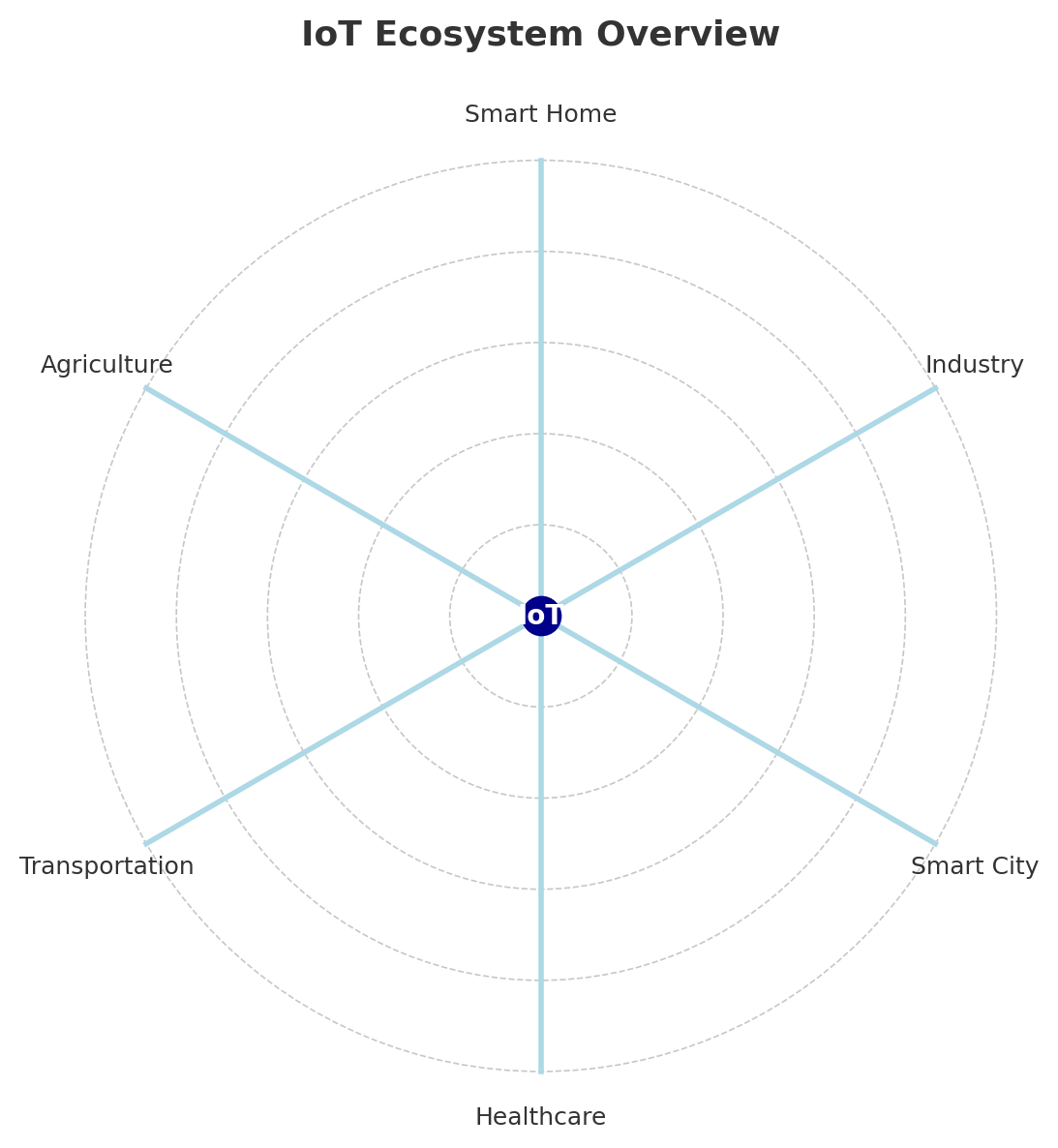
⏳ A Glimpse into the Future: What IoT Enables
The most exciting part of IoT isn’t what exists today—but what’s coming:
-
Smart cities will adapt traffic flow based on real-time conditions.
-
Healthcare systems will predict emergencies before symptoms surface.
-
Factories will maintain themselves, reducing waste and downtime.
-
Agricultural systems will water each plant based on soil feedback.
-
Home devices will integrate seamlessly into daily routines—no prompts needed.
IoT moves us toward an era where the environment doesn’t just respond to our needs—it anticipates them.
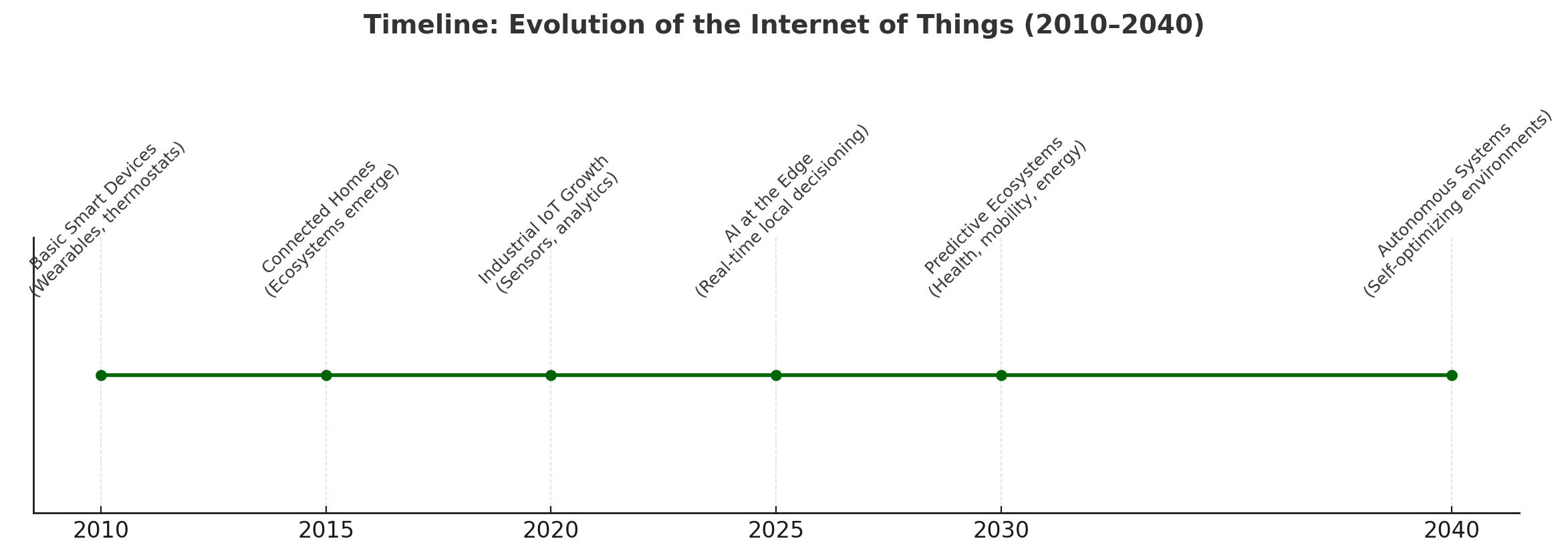
🧾 Conclusion: The Quiet Tech Revolution
The Internet of Things isn’t loud like social media or glamorous like AI art—but it’s silently transforming everything. It’s the invisible layer that makes spaces intelligent, systems efficient, and experiences seamless. As billions more devices come online, IoT will define the next phase of the Internet—one where objects speak, anticipate, and collaborate on our behalf.
Learning to understand—and shape—this ecosystem is essential for everyone, not just engineers. Because in the future, everything connected means everything changed.

